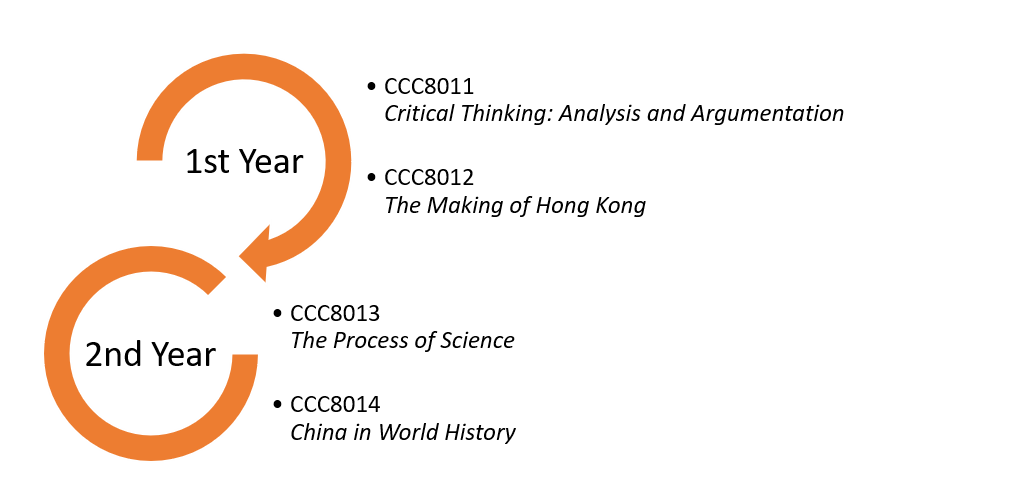Common Core 共同核心

The Common Core was designed to be taken in a structured sequence to ensure a progressive development of foundational skills and knowledge. It aims to provide students with a fundamental and indispensable knowledge base for developing analytical and critical thinking abilities, and for making historically and scientifically informed judgments.
CCC8011 Critical Thinking: Analysis and Argumentation 慎思明辨: 分析與論證 (Department of Philosophy)
The primary aim of this course is to teach first-year students the basic but crucial skills of analysing problems, evaluating inferences, and presenting arguments for or against claims or decisions. Students will acquire these skills by learning about the basic concepts and methods of critical thinking, and by working through problem solving exercises requiring them to employ these concepts and methods. Students will further develop these skills by producing extended arguments defending what they take to be the correct responses to accessible but challenging real issues and problems. The course also aspires to instill in students an open and inquiring attitude, so that students are more willing to look for reasons for and against their views, and more willing to change their views in the face of evidence. Hence, it is hoped that students will develop a habit of reasoning carefully upon completion of this course.
CCC8012 The Making of Hong Kong 構建香港 (Bachelor of Social Sciences Programme)
This inter-disciplinary course introduces students to essential facts and knowledge on the nature of society, politics and economy in contemporary Hong Kong. Students will be able to develop local as well as global perspectives on Hong Kong society, and will consider implications for future policy and practice from multiple perspectives.
CCC8013 The Process of Science 科學的過程 (Science Unit)
This course introduces students to the process of science and the role that science plays in today’s world. Students will meet once per week for a 1.5-hour lecture and a 1.5-hour lab section. The lecture portion develops the students’ understanding of how science works, the role of science in the world, and introduce some of the concurrent science. Instructional methods include lectures, short videos, small group class activities, and individual reflection. The lab portion introduces students to the process of science through lectures, lab demonstrations and small group class activities, and allow them to conduct their own independent research project. Where appropriate, blended learning activities will be implemented in this course.
CCC8014 China in World History 世界史中的中國 (Department of History)
This course provides students a variety of historical frameworks to analyze the development of China’s global role and relationships. The course will follow a basic chronological framework from antiquity to the present day, divided into three distinct units. In the first unit, we will study the development from the first humans to the emergence of the East Asian world order. In the second unit, we will examine the emergence of the global order from the Mongolian empire to the re-centering of the world’s economy from Asia to the Atlantic world. In the third unit, we will look at China’s changing role on the international stage in the 19th and 20th centuries. In each unit, the instruction will emphasize particular patterns of interaction between China and the other countries and peoples. Over the whole course, we will study how those patterns evolved, and the changing, different roles that China has played on the world’s stage.





